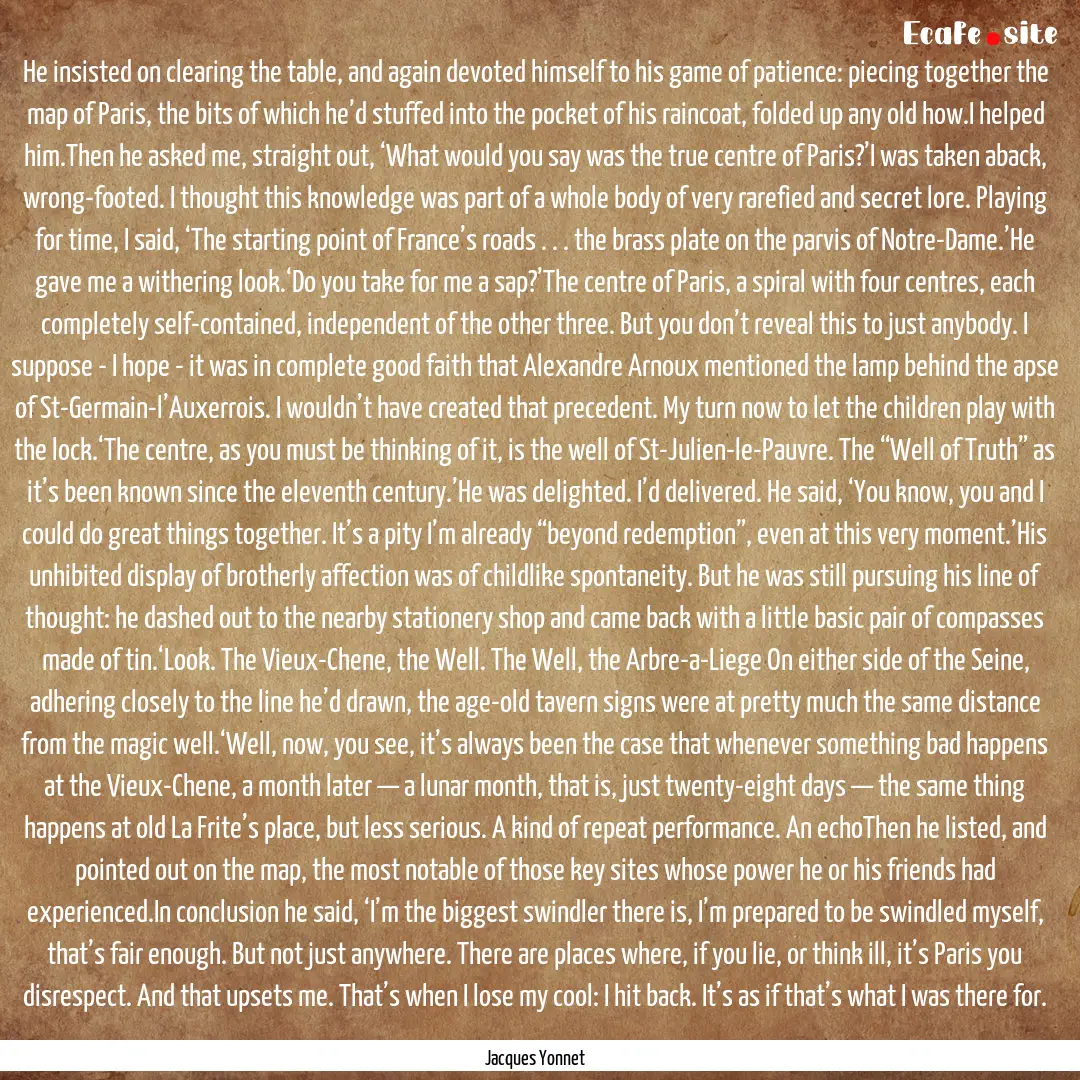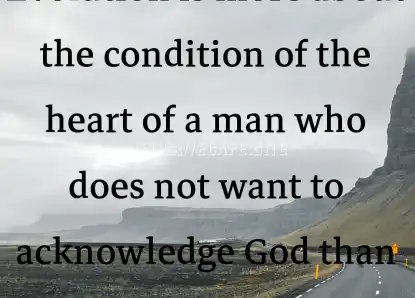
Report, if you have a problem with this page“ He insisted on clearing the table, and again devoted himself to his game of patience: piecing together the map of Paris, the bits of which he’d stuffed into the pocket of his raincoat, folded up any old how.I helped him.Then he asked me, straight out, ‘What would you say was the true centre of Paris?’I was taken aback, wrong-footed. I thought this knowledge was part of a whole body of very rarefied and secret lore. Playing for time, I said, ‘The starting point of France’s roads . . . the brass plate on the parvis of Notre-Dame.’He gave me a withering look.‘Do you take for me a sap?’The centre of Paris, a spiral with four centres, each completely self-contained, independent of the other three. But you don’t reveal this to just anybody. I suppose - I hope - it was in complete good faith that Alexandre Arnoux mentioned the lamp behind the apse of St-Germain-l’Auxerrois. I wouldn’t have created that precedent. My turn now to let the children play with the lock.‘The centre, as you must be thinking of it, is the well of St-Julien-le-Pauvre. The “Well of Truth” as it’s been known since the eleventh century.’He was delighted. I’d delivered. He said, ‘You know, you and I could do great things together. It’s a pity I’m already “beyond redemption”, even at this very moment.’His unhibited display of brotherly affection was of childlike spontaneity. But he was still pursuing his line of thought: he dashed out to the nearby stationery shop and came back with a little basic pair of compasses made of tin.‘Look. The Vieux-Chene, the Well. The Well, the Arbre-a-Liege On either side of the Seine, adhering closely to the line he’d drawn, the age-old tavern signs were at pretty much the same distance from the magic well.‘Well, now, you see, it’s always been the case that whenever something bad happens at the Vieux-Chene, a month later — a lunar month, that is, just twenty-eight days — the same thing happens at old La Frite’s place, but less serious. A kind of repeat performance. An echoThen he listed, and pointed out on the map, the most notable of those key sites whose power he or his friends had experienced.In conclusion he said, ‘I’m the biggest swindler there is, I’m prepared to be swindled myself, that’s fair enough. But not just anywhere. There are places where, if you lie, or think ill, it’s Paris you disrespect. And that upsets me. That’s when I lose my cool: I hit back. It’s as if that’s what I was there for. ”

Jacques Yonnet
From : Paris Noir: The Secret History of a City



